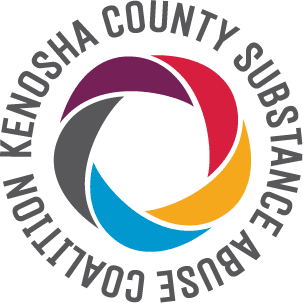- Home
- Departments
- Human Services
- Divisions
- Aging, Disability & Behavioral Health Services
- Behavioral Health Services
- Save Lives Kenosha-KC Substance Abuse Coalition
- Recognizing the Warning Signs of Substance Use
Recognizing the Warning Signs of Substance Use
 Warning Signs of Substance Abuse
Warning Signs of Substance Abuse
Behavioral Warning Signs
- Neglecting responsibilities at school, work, or home (e.g., failing classes, skipping school or work, neglecting your children)
- Problems in relationships (e.g., fights with family members or partners, a boss, or the loss of friends)
- Engaging in secretive or suspicious behavior
- Sudden change in friends, favorite hangouts, and hobbies
- Unexplained need to borrow money or financial problems
- Getting into legal trouble (e.g., arrests for disorderly conduct, driving under the influence, or stealing to support a drug habit)
- Using drugs under dangerous conditions or taking risks while high (e.g., driving while on drugs, using dirty needles, or having unprotected sex)
Physical Warning Signs
- Bloodshot eyes, pupils larger or smaller than usual
- Changes in appetite or sleep patterns
- Sudden weight loss or weight gain
- Deterioration of physical appearance, personal grooming habits
- Unusual smells on breath, body, or clothing
- Tremors, slurred speech, or impaired coordination
Psychological Warning Signs
- Unexplained change in personality or attitude
- Sudden mood swings, irritability, or angry outbursts
- Periods of unusual hyperactivity, agitation, or giddiness
- Lack of motivation; appears lethargic or “spaced out”
- Appears fearful, anxious, or paranoid, with no reason
Warning Signs of Teen Substance Abuse
While experimenting with drugs doesn’t automatically lead to drug abuse, early use is a risk factor for developing more serious drug abuse and addiction. The risk of drug abuse also increases greatly during times of transition, such as changing schools, moving, or divorce.
The challenge for parents is to distinguish between the normal, often volatile, ups and downs of the teen years and the red flags of substance abuse. These include:
- Having bloodshot eyes or dilated pupils and using eye drops to try to mask these signs
- Skipping class, declining grades, suddenly getting into trouble at school
- Missing money, valuables, or prescriptions
- Acting uncharacteristically isolated, withdrawn, angry, or depressed
- Dropping one group of friends for another, being secretive about the new peer group
- Loss of interest in old hobbies; lying about new interests and activities
- Demanding more privacy, locking doors, avoiding eye contact, sneaking around
Warning Signs of Addiction
- Drug tolerance has increased. The person needs to use more of the drug to experience the same effects previously attained with smaller amounts.
- Taking drugs to avoid or relieve withdrawal symptoms. Going too long without drugs causes nausea, restlessness, insomnia, depression, sweating, shaking, and anxiety
- No control over drug use. Drugs are used more often or more than planned, even after promising no use or less use. The person may want to stop using but feels powerless.
- Life revolves around drug use. The person spends a lot of time using and thinking about drugs, figuring out how to get them, and recovering from the effects.
- Abandoning activities previously enjoyed, such as hobbies, sports, and socializing, because of drug use
- Continuing to use drugs, despite knowing the problems it’s causing — blackouts, infections, mood swings, depression, paranoia
Additional Resources
For more information and resources, visit the Navigating Treatment page.